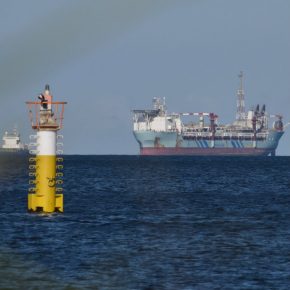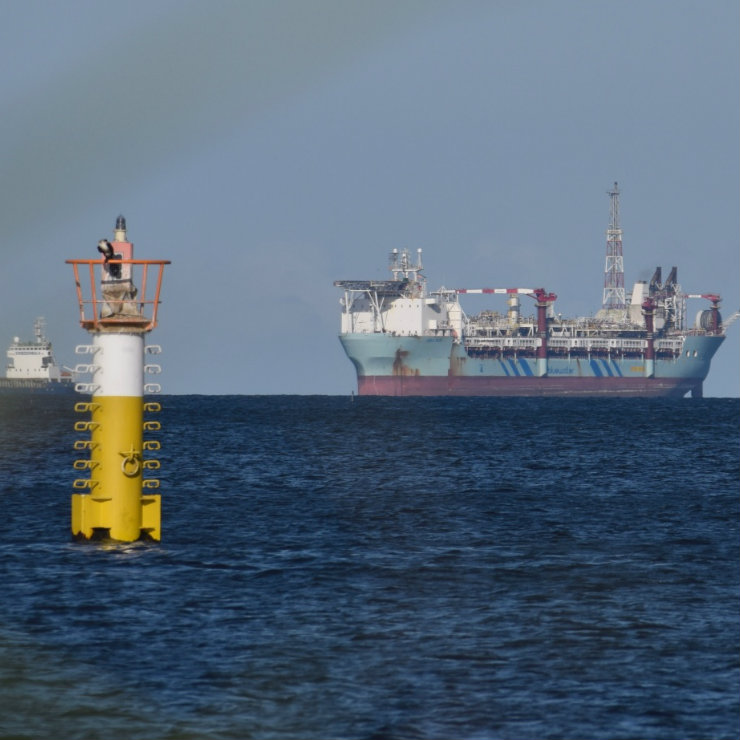
Baltic sea, Sopot, Poland (petrOlly, CC BY-NC-ND 2.0)
“Within this, we are revising the Baltic Sea strategy, including much more use of the circular economy. We have a new, greener, European Parliament, so the future looks bright,” Mr. Struk said. “We have just started the transition from a linear to a circular economy. This is about sustainable, efficient use of resources,” said Marcin Ociepa, Deputy Minister of Entrepreneurship and Technology of Poland, stressing the need to focus on 4 areas: sustainable production and consumption, the bio economy and new business models. “All of society needs to be on board,” Mr. Struk added.
Elzbieta Bienkowska, member of the European Commission responsible for Internal Market, Industry, Entrepreneurship and SMEs, thinks that circular economy is not just a policy choice. “It is inevitable, need to secure supplies, by 2050 need complete economic reform. None of us can do it alone. Baltic Sea strategy is a good example of this,” she said
E-mobility in Gdansk
LOTOS Paliwa, one of the biggest firms in the Polish oil&gas market, is expanding activity towards e-mobility, hydrogen and LNG/CNG. The LEM project consists of the pilot implementation of a network of 2 electric vehicle quick charging stations with a customer service system on the existing station network of LOTOS Paliwa, along the TEN-T corridors Poland (Tricity-Warsaw — sections of A1 and A2 highways).
The Global Project will contribute to increased accessibility of electric car charging station infrastructure along the Polish sections of the BA-NSB core network corridors (Baltic-Adriatic and North See-Baltic). It includes the construction of a total of about 130 universal fast charging stations for electric vehicles
Travelling 450 km from the coast to the capital city (and in the opposite direction) will be possible thanks to charging points spaced at intervals of 160 km or less. These will all meet the needs of the entire e-mobility market for Japanese and Korean vehicles, European vehicles and for Tesla vehicles (with an adapter).
The first activity of the program — construction of the infrastructure of 12 charging stations — is complete and the opening will take place in October.
Initiative is supported as part of the CEF program, managed by the EU agency INEA (Innovation and Networks Executive Agency).The EU funding for the project is about EUR400,000 (up to 50 per cent of the project budget.
Reduce, reuse, rethink
The strategy of LOTOS Group also includes diversification of activities through investments in new market sectors, including in the area of alternative fuels such as LNG, CNG, electricity and hydrogen.
The project is linked to the expansion of the capacity of the regasification LNG terminal in Świnoujście (which has a planned regasification capacity increase from 5.0 billion cubic meters, bcm, to 7.5 bcm).
Expansion of the LNG terminal in Świnoujście offers a real opportunity to create a market of handling and distribution of LNG in Poland and the region, for which one of the key element in the chain of logistics could be an LNG base in Gdansk.
We are MEVO
Mevo will be the largest electric power system in Europe. So far, the leaders are Madrid (over 2,000 electric bikes) and Barcelona (1,000 bikes). It was launched in 14 cities and communes of the Tricity Metropolitan Area (Gdańsk, Gdynia and Sopot). The contract for co-financing was signed on November 2017. The contract with the system contractor, NB Tricity, was signed in June 2018. The launch of 30 per cent of the system took place in March this year.
Renting and returning bikes is simple and intuitive. Mevo can be rented by using an app, proximity card or by contacting the Customer Service Office. Subscription for a month, under which the bike can be used for 90 minutes per day, costs PLN10 (EUR2.36). The project is co-financed by the European Regional Development Fund under the Regional Operational Program of the Pomeranian Voivodeship for years 2014-2020.
“Despite the fact that we do not have a metropolitan law, and we are still working on a joint ticket, today thanks to Mevo the metropolis becomes a reality,” said Aleksandra Dulkiewicz, the mayor of Gdansk and the head of the Tricity Metropolitan Area. “I am very glad that the bike joined us. I do not think anyone expected that 100 per cent of the bicycles would be electric. We are the only such system in Poland,” she added
“The electric bike should not be confused with the scooter,” says Robert Lech, president of Nextbike Polska. “Here the cyclist’s active participation is essential. Thanks to the electric motor, however, the range of the two-wheeler increases. Those who effortlessly covered a few kilometers on an ordinary bike can now go on a several-kilometer-long ride without fear. It is much more convenient for everyday trips.”
There would be no Mevo if it was not for the support of the European Union, which added PLN17.2m (EUR4.05m) to the investment, which was worth over PLN40m (EUR9.43m).
Gdansk turns on, tunes in
Making public lighting energy-efficient in the area of Hevelianum in Gdansk with the use of an energy management system is a key part of the EU Strategy for the Baltic Sea Region (EUSBSR), the first EU macro-regional strategy (MRS1) to be adopted by the European Commission and endorsed by the European Council in 2009.
The strategy brings together eight EU member states around the Baltic Sea, representing 80 million inhabitants, or nearly 16 per cent of the EU population: Estonia, Denmark, Finland, Germany (Berlin; Brandenburg; Hamburg; Mecklenburg-Vorpommern; Schleswig-Holstein), Latvia, Lithuania, Poland and Sweden. The strategy also welcomes cooperation with non- EU countries from the region, namely Belarus, Iceland, Norway and Russia.
Modernization of the lighting at Gora Gradowa in Gdansk was completed in June 2018. The park area and the area neighboring the Millennium Cross have also been revitalized. The next stage of pro-ecological activities at Hevelianum has been implemented using the funds of the Regional Operational Program of the Pomeranian Voivodeship, nearly PLN660,000 (EUR141,396).
Brussels and the Baltic Sea
The EU Strategy for the Baltic Sea Region was followed by three further EU macro-regional strategies (MRS): the EU Strategy for the Danube Region (EUSDR) implemented in 2011, the EU Strategy for the Adriatic and Ionian Region (EUSAIR) in 2014 and the EU Strategy for the Alpine Region (EUSALP) in 2016.
In December 2016, the EC adopted the first report on the implementation of MRS1. These MRS have become an integral part of the EU policy framework; they offer strong potential and contribute in a unique and innovative way to cooperation within the EU and neighboring countries.
The EUSBSR has achieved a variety of results. As a key achievement, it has brought together stakeholders across countries, sectors and levels. The quality of Baltic Sea water is improving and nutrient inflows are being reduced through the implementation of projects such as PRESTO and Interactive water management (IWAMA);
The Baltic Sea is relatively isolated from other seas, having only a narrow connection to the North Sea and it takes approximately 30 years for the Baltic Sea waters to get fully exchanged.


